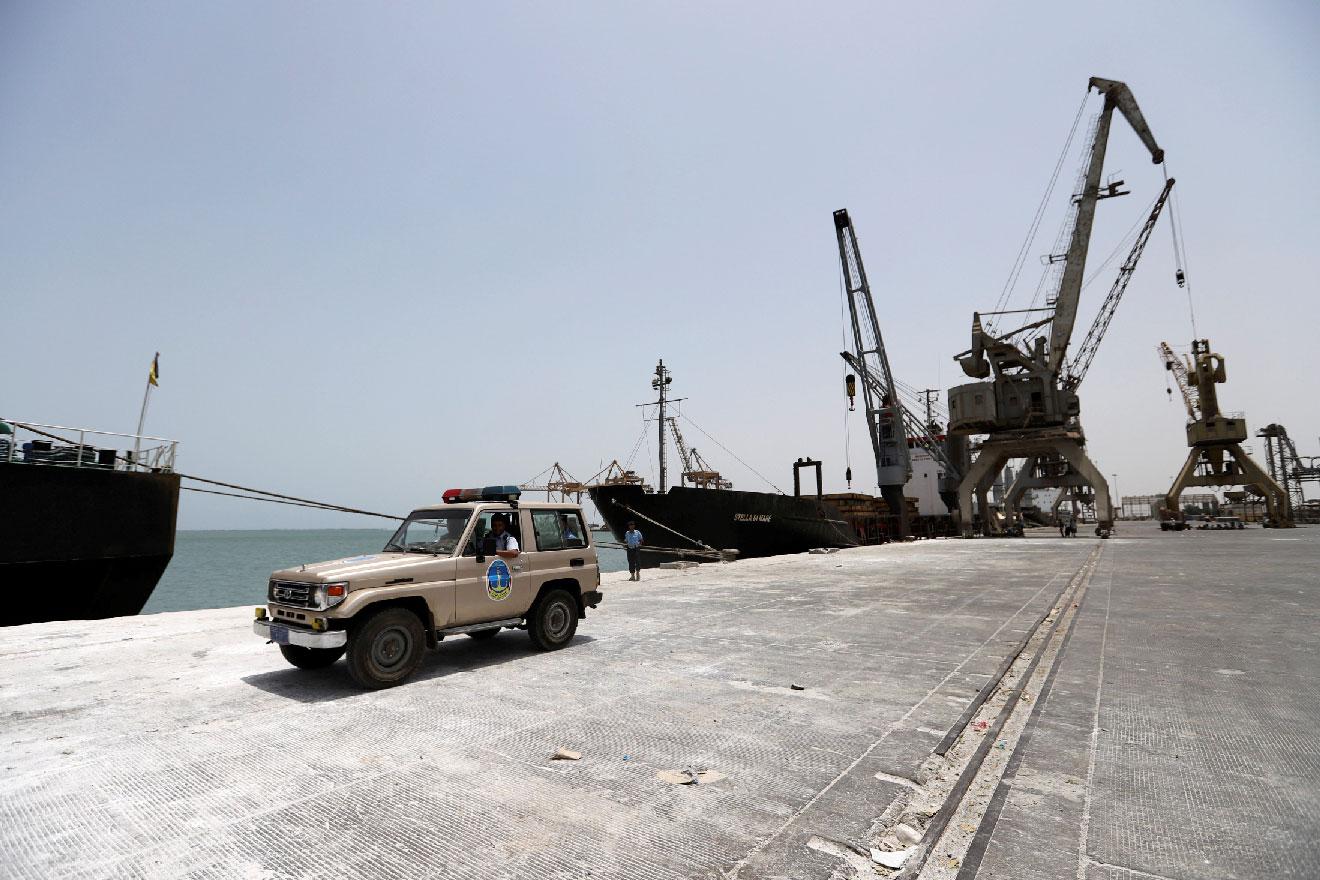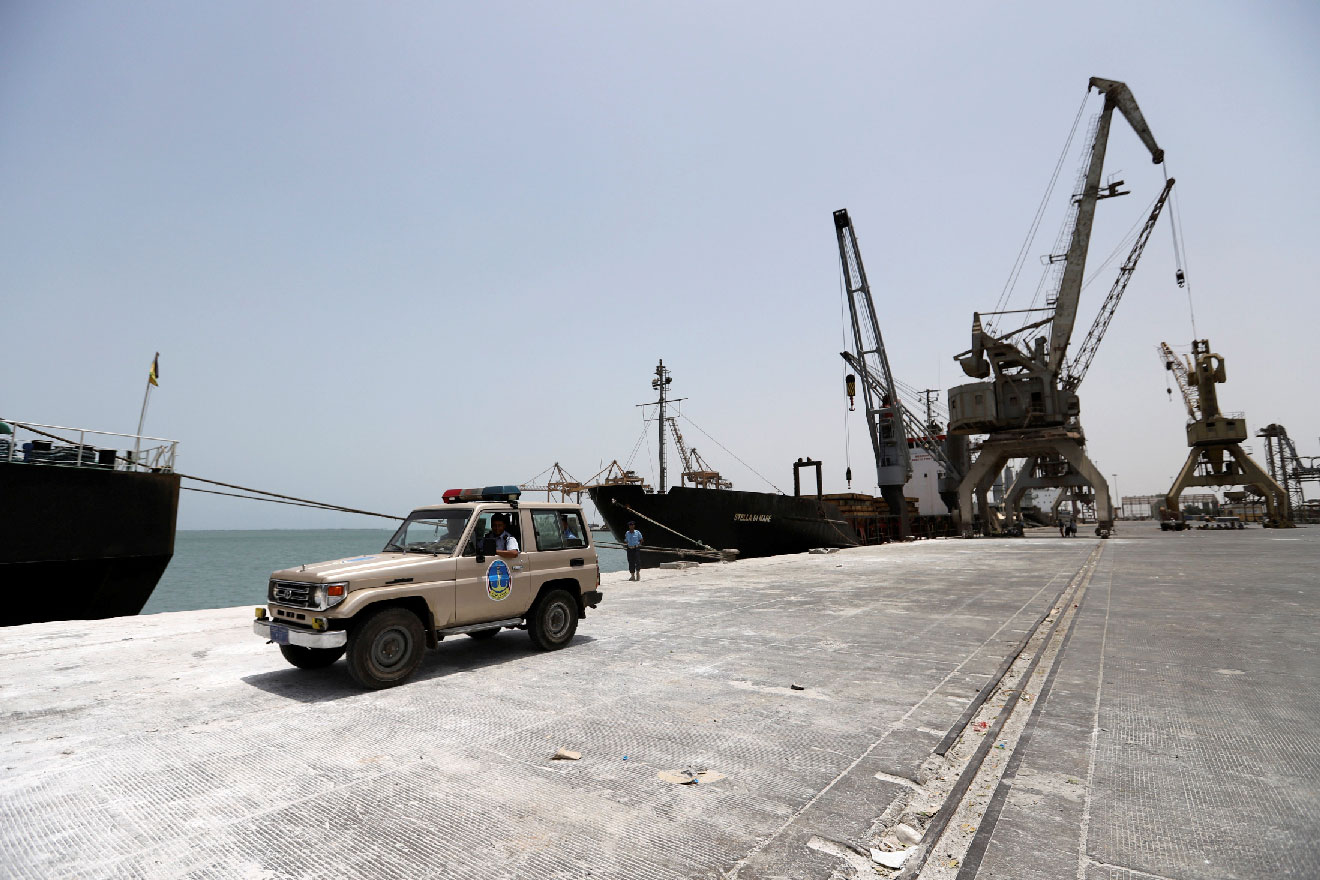UN says 'executed' Huthi withdrawal from key ports
DUBAI - The United Nations said on Tuesday a withdrawal by Yemen's Huthi movement from three Red Sea ports had been carried out "partly as agreed" by warring parties under a peace deal that it hopes will pave the way for wider peace talks.
The Iranian-aligned Huthi movement's unilateral pullout from the ports, used for grain, oil, commerce and aid, began on Saturday, in the most significant advance yet for efforts to end the four-year-old war and relieve a hunger crisis.
Hodeidah is Yemen's main port and a lifeline for millions of Yemenis on the brink of starvation, a situation exacerbated by restricted imports of food and other supplies due to the war.
Huthi forces are also pulling out of Saleef and Ras Isa.
The withdrawal was a diplomatic breakthrough after months of stalling and takes place at a time of heightened tension in the Arab Gulf region that could complicate peace efforts led by UN envoy Martin Griffiths.
Saudi Arabia said armed drones struck two oil pumping stations on Tuesday, after Huthi-run Masirah TV earlier said the group had launched drone attacks on Saudi installations in response to what it called Saudi aggression and a blockade on Yemen.
The Huthis have repeatedly launched drone and missile attacks on Saudi cities, but two Saudi sources told Reuters this was the first time a facility belonging to the state-run oil company Aramco had been hit by drones.
And on Sunday four ships, including two Saudi tankers, were damaged off the coast of the UAE emirate of Fujairah, a bunkering hub. Saudi Arabia said they had been sabotaged, but the origin of the attack remains unclear.
Lieutenant General Michael Lollesgaard, head of the UN's Redeployment Coordination Committee (RCC) in Hodeidah, welcomed the fact that the ports had been handed over to local coast guards. He urged parties to finalise negotiations for a full implementation of the next stages of the Hodeidah deal.
"UN teams have been monitoring this redeployment which has been executed, partly as agreed by the Yemeni parties in the concept of phase one," Lollesgaard said in a statement after visiting the ports.
"There is still a lot of work to be done on the removal of the (military) manifestations, but cooperation has been very good," he said.
Meanwhile, the warring sides were meeting in the Jordanian capital Amman to discuss the management and distribution of revenues from the ports.
Saudi Arabia and the United Arab Emirates, leaders of the coalition backing President Abd Rabbu Mansour Hadi's internationally recognised government, did not comment on the Huthi withdrawal.
A ceasefire in Hodeidah has largely held but violence continues elsewhere in the country.
The UN's Griffiths said on Tuesday he was "deeply concerned" about an escalation of fighting in recent weeks in the al-Dhalea region, which lies on the main south-north transport route, and urged restraint from all parties.


